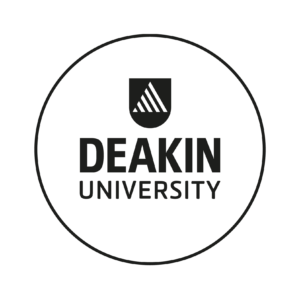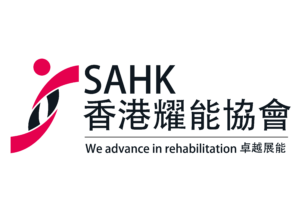Associate Professor, Hong Kong Polytechnic University
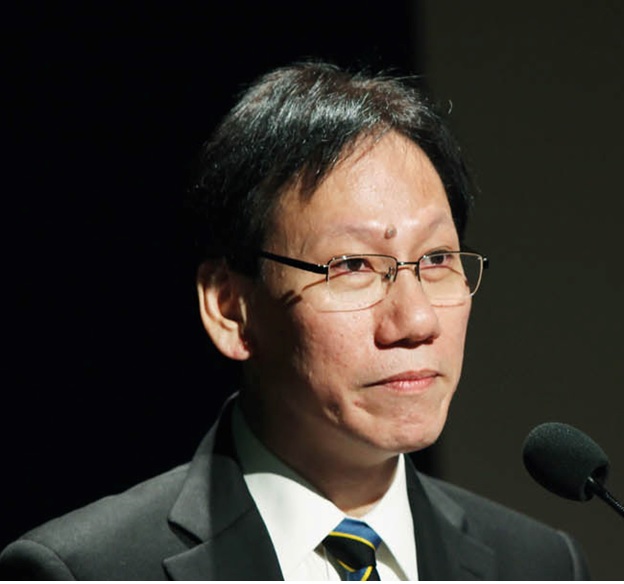
Associate Professor, Hong Kong Polytechnic University
Dr. Leung is the Associate Professor of the Department of Chinese and Bilingual Studies, Faculty of Humanities, Hong Kong Polytechnic University. He received his Speech Pathologist qualification from Lincoln Institute of Health Sciences, Australia and his Ph. D. degree from The University of Hong Kong.
Dr. Leung specializes in research and teaching on language processing, acquired language disorders and children reading development. He has developed several treatment approaches for dyslexic students and has gained substantial experiences in conducting school-based treatment in Hong Kong.
He has published articles, books, book chapters on corpus linguistics, reading and its relationship with cognitive, psychological and linguistic development, standardized assessment and treatment for dyslexia.
https://www.polyu.edu.hk/cbs/st/en/about-us/our-professional-team/academic-staff/dr-man-tak-leung
Honorary Clinical Associate Professor, Department of Pediatrics and Adolescent Medicine, The University of Hong Kong
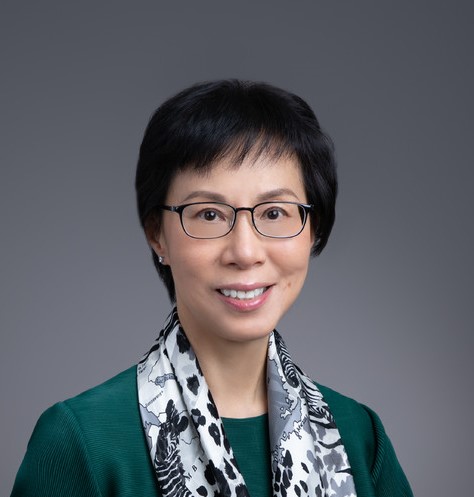
Honorary Clinical Associate Professor, Department of Pediatrics and Adolescent Medicine, The University of Hong Kong
Adjunct Professor & Educational Psychologist, Mitchell Institute, Victoria University
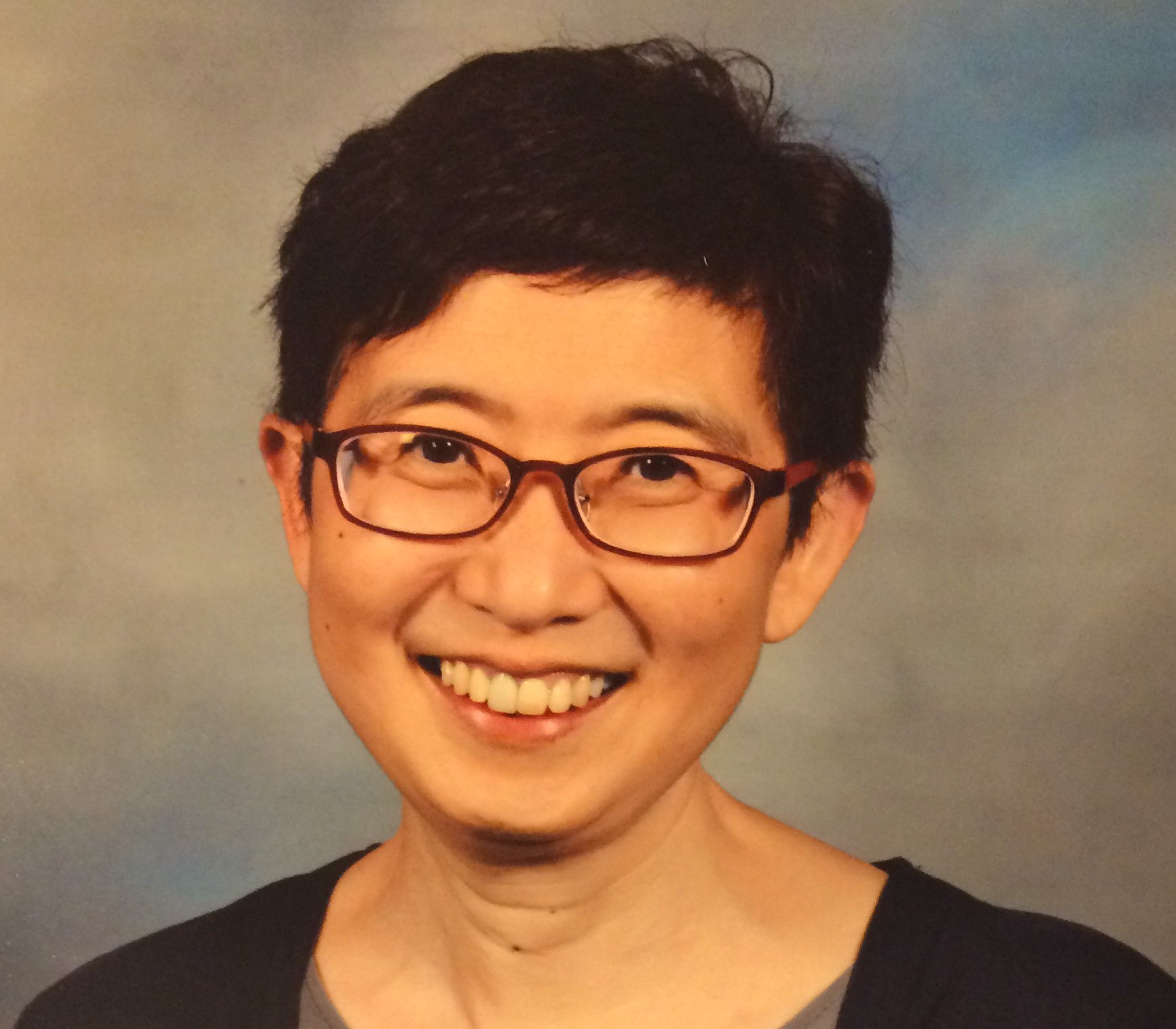
Adjunct Professor & Educational Psychologist, Mitchell Institute, Victoria University
Dr Cynthia Leung is an educational psychologist. She is currently Adjunct Professor, Mitchell Institute, Victoria University; Honorary Professor, Department of Paediatrics and Adolescent Medicine, The University of Hong Kong; and Department of Applied Social Sciences, The Hong Kong Polytechnic University. She was formerly Professor and Psychology Panel Chair, and program leader of the Master of Educational and Child Psychology program at the Department of Applied Social Sciences, The Hong Kong Polytechnic University.
Dr Leung’s research includes parenting education, test development, program evaluation, children with developmental disability, migrant adjustment, child and adolescent well-being, and she has published extensively in these areas.
Director of Quality Accreditation and Professional Coaching Scheme, Pacific Early Childhood Education Research Association (Hong Kong)
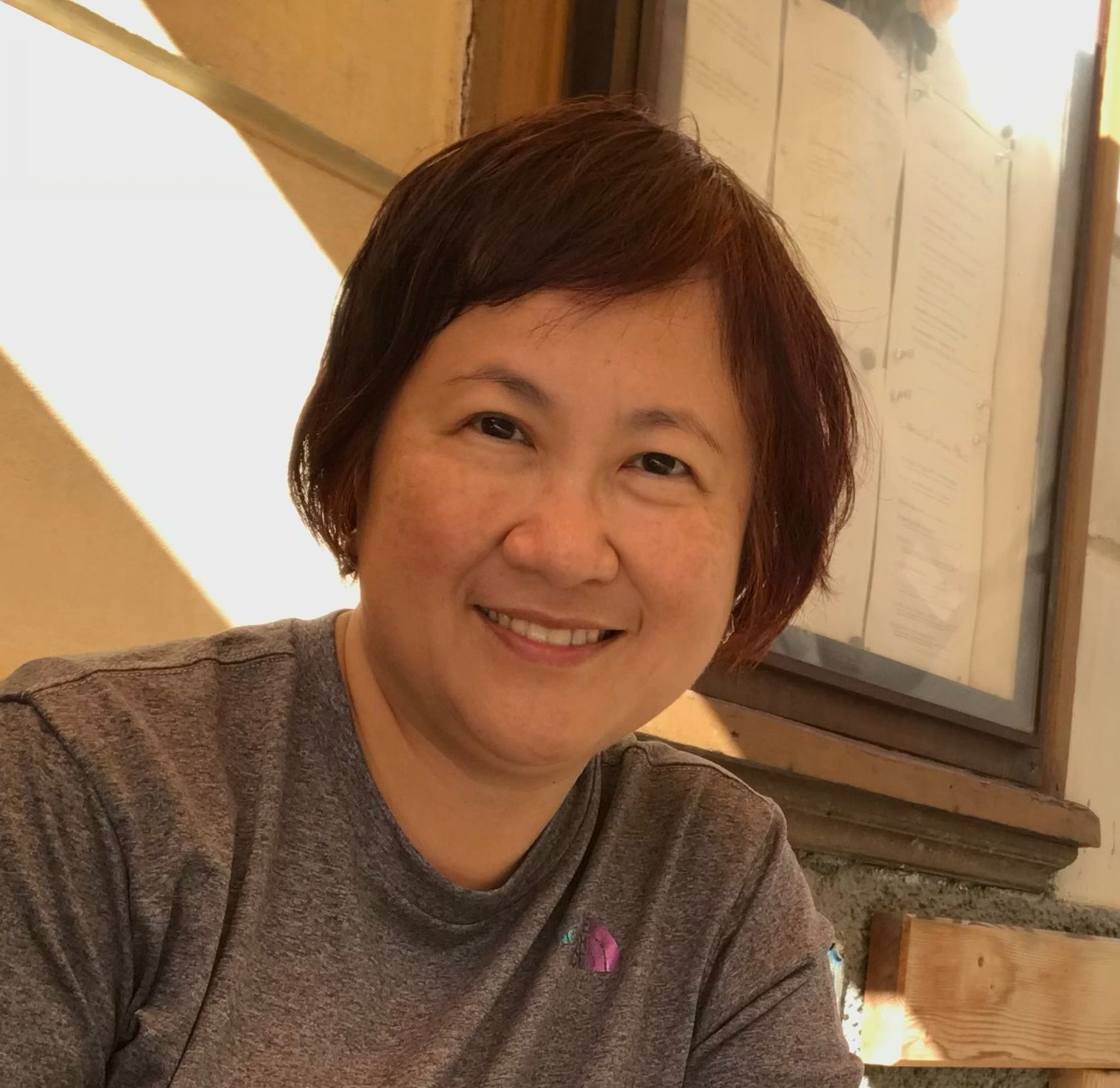
Director of Quality Accreditation and Professional Coaching Scheme, Pacific Early Childhood Education Research Association (Hong Kong)
Mrs. Yeung had been serving as a secondary school teacher once she completed her Bachelor degree of Arts in the University of Hong Kong. She pursued her continuous studies by taking the Master degree program of early childhood education that was first launched by the University of Hong Kong in 1982.
When she graduated, she took up the headship in a kindergarten and involved in curriculum planning and implementation. She was simultaneously serving as an evening lecturer in the former Hong Kong Polytechnic (now the Hong Kong Polytechnic University) to train up supervisors and frontline workers of child care centres, and later became a full-time lecturer being involved in the new initiative to develop an early childhood education program in a distance learning mode. Mrs. Yeung joined the Education Department (now known as Education Bureau) in 1989. She had been participating in curriculum development, advisory inspection, teacher training, and primary and secondary school ETV production.
Since 2002, she had been performing as a principal inspector with her main duties being devoted to supervising the Hong Kong kindergarten education service and promoting the culture of quality early childhood education. In the period of 2009-2010, she was responsible for planning and monitoring the execution of the Quality Education Fund and the Education Development Fund. Before her retirement, she had accumulated plenty of valuable experience in planning and rendering professional support services to pre-primary institutions. She had strived for motivating them to organize professional learning communities and school-based action research for continuous school development.
Chair Professor of Social Research; Associate Vice President (Assessment);
Associate Vice President (Graduate Studies); Dean, Graduate School;
Co-Director, Analytics\Assessment Research Centre; Co-Director, Centre for Special Educational Needs and Inclusive Education,
The Education University of Hong Kong

Chair Professor of Social Research; Associate Vice President (Assessment);
Associate Vice President (Graduate Studies); Dean, Graduate School;
Co-Director, Analytics/Assessment Research Centre; Co-Director, Centre for Special Educational Needs and Inclusive Education,
The Education University of Hong Kong
After graduating from the School of Public Health at UC Berkeley, Professor Lo Sing-kai had been an academic staff in a number of universities in the US, Australia, Hong Kong, and Taiwan.
Prior to joining The Education University of Hong Kong (the then Hong Kong Institute of Education), he was Associate Dean of Research at Deakin University, Melbourne, Australia; overseeing the Higher Degree by Research Program in the Health Faculty and coordinating research collaborations with China.
He has a solid track record in securing research incomes; and has published more than 200 articles, mainly in journals with high impact factors. He has also won numerous teaching awards, both from tertiary institutions he taught before and from private educational foundations. He has a strong background in capacity building; and is particularly experienced in providing mentorship services to early and mid-career researchers. His areas of research include evidence-based methodologies, and social and personal health and wellbeing.
In terms of personal “hobby”, he is very interested in oriental medicine; he used to be an adjunct professor at the Shanghai University of Traditional Chinese Medicine, and still has closed link with colleagues in Korean medicine at Seoul National University.
Associate Professor, Deakin University
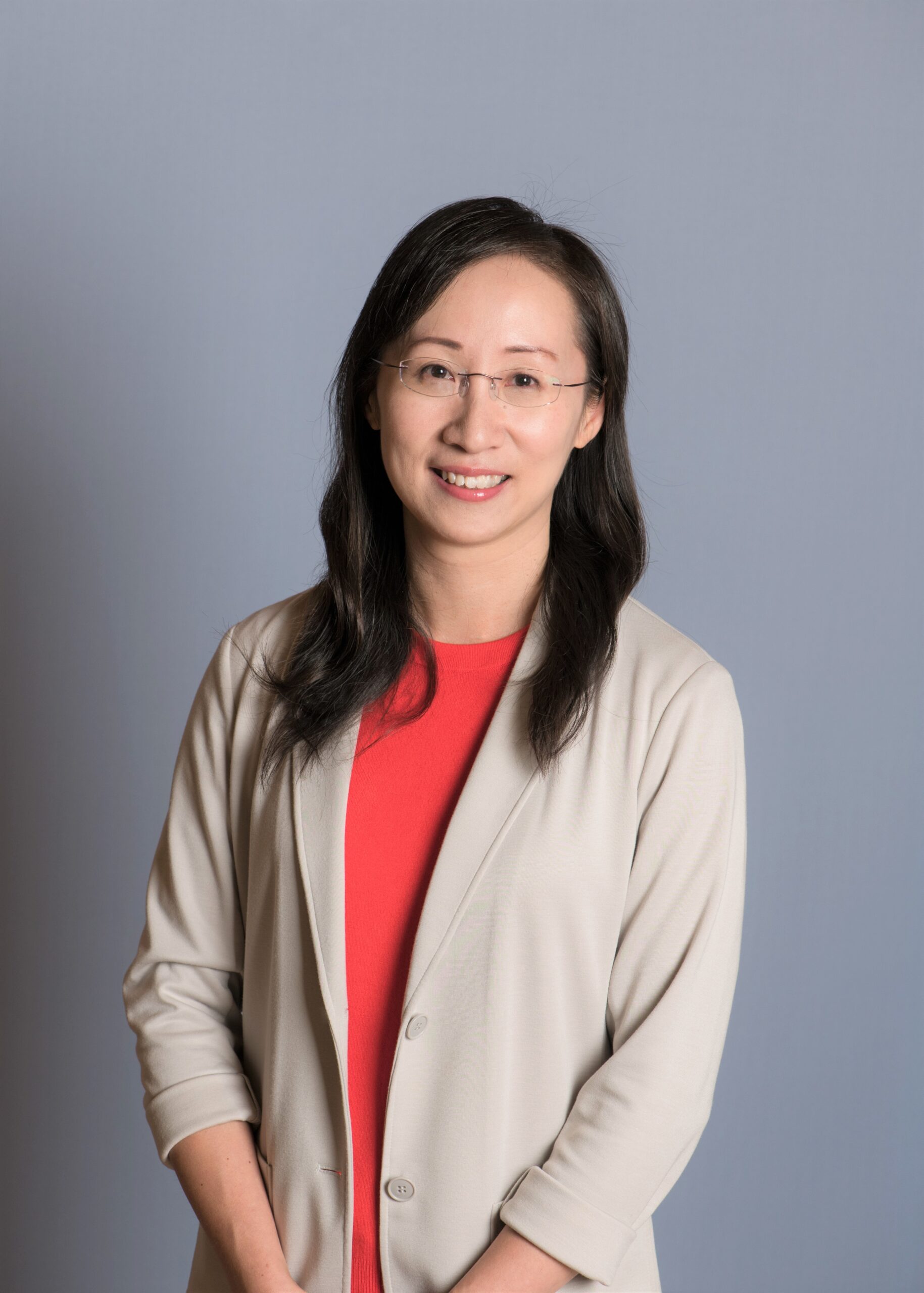
Associate Professor, Deakin University
Associate Professor Bonnie Yim is the Associate Dean (International & Engagement) of the Faculty of Arts and Education at Deakin University in Australia. Bonnie’s research interests include teacher education, curriculum development and evaluation, cross-cultural studies, and engagement in learning. She is an active researcher and has published widely in these areas. She also undertakes research that focuses on positive outcomes for learners in the Asia-Pacific region through collaborative partnerships with Non-Government Organisations (NGOs) and philanthropic organisations.
Her research is framed by mixed-method analysis, teacher professionalism and sociocultural theories. Bonnie is also an early year’s consultant in Australia, Singapore, China (including HKSAR), Sri Lanka and Indonesia.
Emeritus Professor of Early Childhood Education, University of South Australia
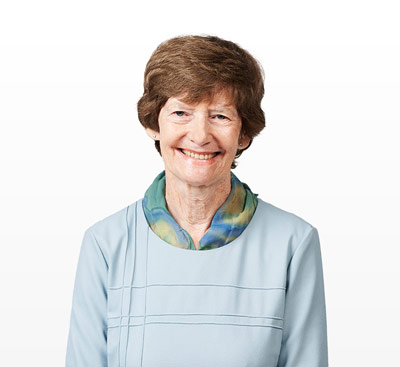
Emeritus Professor of Early Childhood Education, University of South Australia
Emeritus Professor Marjory Ebbeck is an active member of the University of South Australia’s Professoriate. She has contributed to the development of early childhood courses and research in a range of countries and cities including Australia, Canada, the United Kingdom, Brunei, Singapore, Malaysia and Hong Kong. She has also worked in Mauritius for UNICEF. Her research interests include curriculum development in early childhood and primary education, multi-modal teaching in the language arts, research methods, staff development and cultural continuities.
She has written textbooks, book chapters and contributed consistently to international journals. She is a reviewer for the Pan Pacific Region – Springer Journal and on several editorial boards. She has recently as the lead researcher completed a three year follow through study on birth to three years for one of the largest child care providers in Singapore. She continues to be a strong advocate to improve the status, and industrial conditions of early childhood staff throughout the world.
Senior Lecturer, Yew Chung College of Early Childhood Education
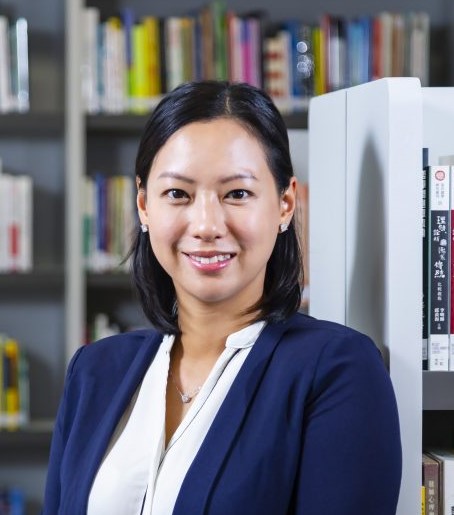
Senior Lecturer, Yew Chung College of Early Childhood Education
BA, The University of Hong Kong
PDGE (ECE), The University of Hong Kong
Med (Special Education), Sydney University
Ms. Ting has over 10 years experience in pre-service and in-service early childhood teacher education specialising in children with diverse/ special needs and orchestrating practicum. In addition, Ms. Ting is a registered teacher, previously she worked in both local and international kindergartens in Hong Kong, Australia and South Korea before progressing as a lecturer. She then taught in various higher education institutions prior to joining YCCECE. She has extensive experience in programme management and practicum coordination, with close contact and network with the early childhood practitioners (both front-line and senior management) and is familiar with the HKSAR government policies and services available for teachers’ training and professional development as well as for families and children with special education needs.
Ms. Ting’s research interests include learner diversity and inclusive education, working with parents of children with special needs and teacher education and professional development.
Senior Teaching Fellow / Social Worker, The Hong Kong Polytechnic University

Senior Teaching Fellow / Social Worker, The Hong Kong Polytechnic University
Dr Yam Kong is a Senior Teaching Fellow in the Department of Applied Social Sciences (APSS) at The Hong Kong Polytechnic University and serves as the Programme Leader of the Bachelor of Arts (Honors) in Social Work (BASW) Programme. He is also the Director of the Professional Practice and Assessment Centre.
Dr Yam has over two decades of experience as a registered social worker, counsellor, trainer and educator. In particular, he has been dedicated to promoting professional social work education, counselling practices and teaching research. In addition, he has engaged in direct services for contributing to the needy and the community.
He has served as a board member, consultant, trainer and counsellor to support a number of NGOs, government departments and people who are in need of counselling services.
He was awarded the Faculty Teaching Award in 2016 and the APSS Department’s Best Teaching Award twice, in 2015 and 2021.
https://www.polyu.edu.hk/apss/people/academic-staff/dr-yam-kong/
Clinical Associate / Occupational Therapist, The Hong Kong Polytechnic University
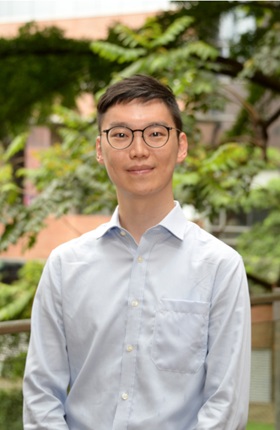
Clinical Associate / Occupational Therapist, The Hong Kong Polytechnic University
Mr Johnny W. H. Lam graduated with a bachelor’s degree in Occupational Therapy, and completed his master studies in Special Education and Educational Leadership and Management. He is specialized in developmental disabilities and has provided rehabilitation services in a wide variety of local settings including special child care centers, mainstream primary/secondary schools, employment center for youth with autism, public hospital and private clinics before joining The Hong Kong Polytechnic University.
With over a decade of experience in pediatric rehabilitation, and a passion for sharing his skills and experience, he has been regularly invited as a guest lecture speaker, and served as a Clinical Educator for both undergraduates and postgraduates in Occupational Therapy since 2013. Over the last 10 years, he has been actively involved in delivering training workshops and seminars in Hong Kong, Chinese Mainland, Taiwan and Macau. He has particular interests in fine motor development, sensory processing and executive functioning.
https://www.polyu.edu.hk/rs/people/academic-staff/mr-johnny-lam/
Research Officer / Educational Psychologist, The Hong Kong Polytechnic University
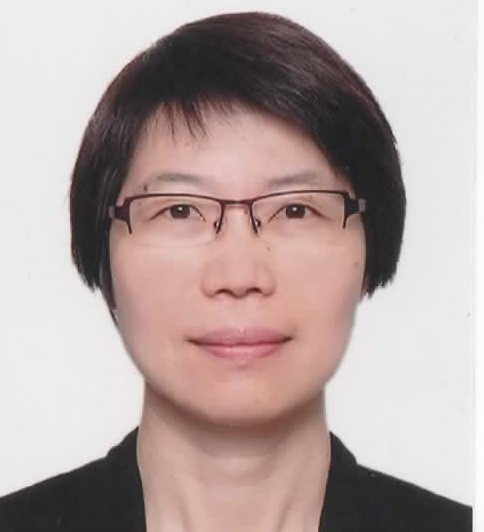
Research Officer / Educational Psychologist, The Hong Kong Polytechnic University
Lourdes Lam is an experienced educational psychologist of SAHK, a rehabilitation service organization, for over 25 years. Her previous work focuses on curriculum and teaching strategy development for special schools and preschool services. Promoting the social-communication development and learning of students with autism spectrum disorders is a career-long passion, as shown by her dedication in the adaptation and research of the PEERS program. Recently, she has involved in two pilot projects: Jockey Club Autism Support Network (JC-A-Connect) and the Jockey Club Inclusive Quality Preschool Project (JCIQ).
Clinical Instructor/ Educational Psychologist, The Hong Kong Polytechnic University

Clinical Instructor / Educational Psychologist, The Hong Kong Polytechnic University
Registered Educational Psychologist, Hong Kong Psychological Society
M.Sc. in Educational and Child Psychology, Hong Kong Polytechnic University
B.Soc.Sc. (Hons) in Psychology, Hong Kong Shue Yan University
Ms. Elmo Chan is a registered Educational Psychologist trained in Hong Kong and worked for different organizations in the past few years.
Elmo has supported many students in her career. Her clientele ranged from preschoolers to college students, from school principals to parents. She is experienced in diagnosing and managing children with learning difficulties, social-emotional difficulties, Attention Deficit/Hyperactivity Disorder, and Autism Spectrum Disorder, providing positive parenting through consultation, talks and workshops.
Elmo is a professional psychologist who is welcomed by parents and schools. She can give professional and practical recommendations to parents and schools on how to support their children and students. She has years of experience in giving advice on school policy supporting students with special educational needs.
Teaching Fellow, The Hong Kong Polytechnic University
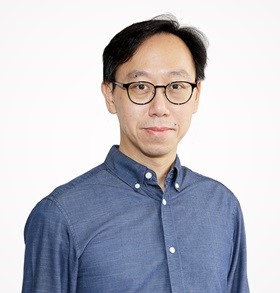
Teaching Fellow, The Hong Kong Polytechnic University
Dr Wong Yau-kai received his Doctor of Education degree specializing in Educational Psychology from the Chinese University of Hong Kong. He is a teaching fellow and the program leader of the Master of Applied Psychology program in the Department of Applied Social Sciences at the Hong Kong Polytechnic University. He has years of teaching, community service and research experience on special educational needs and inclusive education. His specialty and research interests cover children and youth with special educational needs (SEN), assessment and intervention for individuals with specific learning difficulties.
https://www.polyu.edu.hk/apss/people/academic-staff/dr-wong-yau-kai-herrick/
Physiotherapist, The Hong Kong Polytechnic University
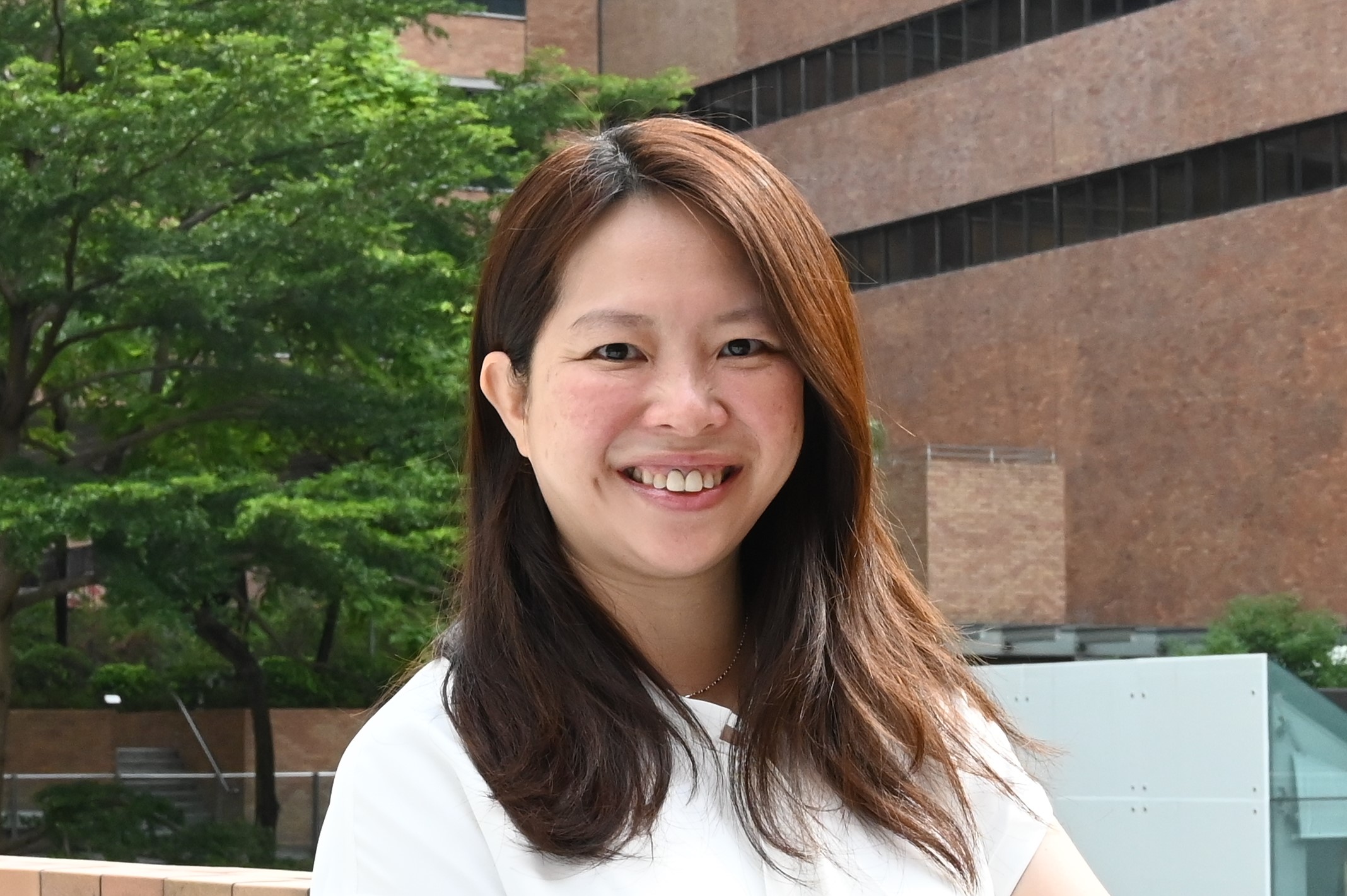
Physiotherapist, The Hong Kong Polytechnic University
Ms Jacqueline Au-Yeung obtained her Bachelor of Science degree in Physiotherapy and Master of Science degree in Health Care from The Hong Kong Polytechnic University.
After graduated from PolyU, she dedicated herself to work as a physiotherapist in paediatric settings including Early Education and Training Centre, Special Child Centre and Special School for Children with Physical Handicap under NGOs for more than 20 years. She has extensive clinical experience in rehabilitation for children with congenital as well as acquired conditions and is passionate in training the care givers. She treats children with SEN and support them to transit from preschool age through school age to adulthood.
Jacqueline joined the PolyU Rehabilitation Science team in 2020 as a Clinical Associate, hoping to nurture the forthcoming professional physiotherapist with her knowledge and experience.
https://www.polyu.edu.hk/rs/people/academic-staff/ms-jacqueline-au-yeung/
Project Period
June 2021 – January 2023
Our Program
To establish a best practice model of the “Inclusive Quality (IQ) Preschool”, which integrates OPRS and tier 1 service, with top up Preschool Learning Support professional team’s manpower (OT, PT, ST, SCCW, social worker) and the provision of school-based professional support. Through the close collaboration and exchange with various partners, early childhood teachers become more competent in catering for learner’s diversity to promote effective learning.
3 Key Project components
Universal Design for Learning UDL
Universal Design for Learning (UDL) is an approach (how) to inclusive education, where learning environment, curriculum and teaching strategies are intentionally designed to meet the needs of every learner in an educational setting. It requires careful planning and facilitation by teachers/carers (who) who are able to provide age- and ability-appropriate scaffolding for all children. For young learners, education and care are best embedded in a daily schedule of routines and regular activities in the mainstream classroom (when & where), which provides structure, consistency and predictability. Daily routines are meaningful contexts for learning new skills because they are functional, and occurs frequently. This provides needed security for children thus enabling better engagement and hopefully peer acceptance of children with additional needs.
Response to Intervention (RTI) Approach
Response to Intervention (RTI) approach is based on the modern learning theory that instruction activities should be based on knowledge of students’ successes or failures on tasks taught. It integrates assessment and intervention within a multi-tier system to maximize student learning and to reduce behavioural problems (Hempenstall, 2012). This tiered approach allows the intensity of support services to vary according to the child’s needs, enabling efficient use of resources (National Center for Learning Disabilities, 2017).
Collaborative Consultation to Children’s Classrooms (CC2CC)
The nutshell of Collaborative Consultation to Children’s Classrooms (CC2CC) is that children with developmental disabilities should be given plenty of opportunities and experiences through daily routines and regular activities in their natural environment, to facilitate their acquisition of functional skills which enable them to participate fully in their daily lives. For children aged under 5 years, their natural environment includes the preschool settings in addition to their home environments.
Date : 6 January 2023
Venue : The Hong Kong Polytechnic University
Dr Shirley Leung,
Hon. Clinical Associate Professor, The University of Hong Kong
Dr Bonnie Yim,
Associate Professor, Deakin University
Dr Cynthia Leung,
Adjunct Professor & Educational Psychologist, Mitchell Institute, Victoria University
Dr Shirley Leung,
Hon. Clinical Associate Professor, The University of Hong Kong
Associate Professor, Hong Kong Polytechnic University

Associate Professor, Hong Kong Polytechnic University
Dr. Leung is the Associate Professor of the Department of Chinese and Bilingual Studies, Faculty of Humanities, Hong Kong Polytechnic University. He received his Speech Pathologist qualification from Lincoln Institute of Health Sciences, Australia and his Ph. D. degree from The University of Hong Kong.
Dr. Leung specializes in research and teaching on language processing, acquired language disorders and children reading development. He has developed several treatment approaches for dyslexic students and has gained substantial experiences in conducting school-based treatment in Hong Kong.
He has published articles, books, book chapters on corpus linguistics, reading and its relationship with cognitive, psychological and linguistic development, standardized assessment and treatment for dyslexia.
https://www.polyu.edu.hk/cbs/st/en/about-us/our-professional-team/academic-staff/dr-man-tak-leung
Honorary Clinical Associate Professor, Department of Pediatrics and Adolescent Medicine, The University of Hong Kong

Honorary Clinical Associate Professor, Department of Pediatrics and Adolescent Medicine, The University of Hong Kong
Adjunct Professor & Educational Psychologist, Mitchell Institute, Victoria University

Adjunct Professor & Educational Psychologist, Mitchell Institute, Victoria University
Dr Cynthia Leung is an educational psychologist. She is currently Adjunct Professor, Mitchell Institute, Victoria University; Honorary Professor, Department of Paediatrics and Adolescent Medicine, The University of Hong Kong; and Department of Applied Social Sciences, The Hong Kong Polytechnic University. She was formerly Professor and Psychology Panel Chair, and program leader of the Master of Educational and Child Psychology program at the Department of Applied Social Sciences, The Hong Kong Polytechnic University.
Dr Leung’s research includes parenting education, test development, program evaluation, children with developmental disability, migrant adjustment, child and adolescent well-being, and she has published extensively in these areas.
Director of Quality Accreditation and Professional Coaching Scheme, Pacific Early Childhood Education Research Association (Hong Kong)

Director of Quality Accreditation and Professional Coaching Scheme, Pacific Early Childhood Education Research Association (Hong Kong)
Mrs. Yeung had been serving as a secondary school teacher once she completed her Bachelor degree of Arts in the University of Hong Kong. She pursued her continuous studies by taking the Master degree program of early childhood education that was first launched by the University of Hong Kong in 1982.
When she graduated, she took up the headship in a kindergarten and involved in curriculum planning and implementation. She was simultaneously serving as an evening lecturer in the former Hong Kong Polytechnic (now the Hong Kong Polytechnic University) to train up supervisors and frontline workers of child care centres, and later became a full-time lecturer being involved in the new initiative to develop an early childhood education program in a distance learning mode. Mrs. Yeung joined the Education Department (now known as Education Bureau) in 1989. She had been participating in curriculum development, advisory inspection, teacher training, and primary and secondary school ETV production.
Since 2002, she had been performing as a principal inspector with her main duties being devoted to supervising the Hong Kong kindergarten education service and promoting the culture of quality early childhood education. In the period of 2009-2010, she was responsible for planning and monitoring the execution of the Quality Education Fund and the Education Development Fund. Before her retirement, she had accumulated plenty of valuable experience in planning and rendering professional support services to pre-primary institutions. She had strived for motivating them to organize professional learning communities and school-based action research for continuous school development.
Chair Professor of Social Research; Associate Vice President (Assessment);
Associate Vice President (Graduate Studies); Dean, Graduate School;
Co-Director, Analytics\Assessment Research Centre; Co-Director, Centre for Special Educational Needs and Inclusive Education,
The Education University of Hong Kong

Chair Professor of Social Research; Associate Vice President (Assessment);
Associate Vice President (Graduate Studies); Dean, Graduate School;
Co-Director, Analytics/Assessment Research Centre; Co-Director, Centre for Special Educational Needs and Inclusive Education,
The Education University of Hong Kong
After graduating from the School of Public Health at UC Berkeley, Professor Lo Sing-kai had been an academic staff in a number of universities in the US, Australia, Hong Kong, and Taiwan.
Prior to joining The Education University of Hong Kong (the then Hong Kong Institute of Education), he was Associate Dean of Research at Deakin University, Melbourne, Australia; overseeing the Higher Degree by Research Program in the Health Faculty and coordinating research collaborations with China.
He has a solid track record in securing research incomes; and has published more than 200 articles, mainly in journals with high impact factors. He has also won numerous teaching awards, both from tertiary institutions he taught before and from private educational foundations. He has a strong background in capacity building; and is particularly experienced in providing mentorship services to early and mid-career researchers. His areas of research include evidence-based methodologies, and social and personal health and wellbeing.
In terms of personal “hobby”, he is very interested in oriental medicine; he used to be an adjunct professor at the Shanghai University of Traditional Chinese Medicine, and still has closed link with colleagues in Korean medicine at Seoul National University.
Associate Professor, Deakin University

Associate Professor, Deakin University
Associate Professor Bonnie Yim is the Associate Dean (International & Engagement) of the Faculty of Arts and Education at Deakin University in Australia. Bonnie’s research interests include teacher education, curriculum development and evaluation, cross-cultural studies, and engagement in learning. She is an active researcher and has published widely in these areas. She also undertakes research that focuses on positive outcomes for learners in the Asia-Pacific region through collaborative partnerships with Non-Government Organisations (NGOs) and philanthropic organisations.
Her research is framed by mixed-method analysis, teacher professionalism and sociocultural theories. Bonnie is also an early year’s consultant in Australia, Singapore, China (including HKSAR), Sri Lanka and Indonesia.
Emeritus Professor of Early Childhood Education, University of South Australia

Emeritus Professor of Early Childhood Education, University of South Australia
Emeritus Professor Marjory Ebbeck is an active member of the University of South Australia’s Professoriate. She has contributed to the development of early childhood courses and research in a range of countries and cities including Australia, Canada, the United Kingdom, Brunei, Singapore, Malaysia and Hong Kong. She has also worked in Mauritius for UNICEF. Her research interests include curriculum development in early childhood and primary education, multi-modal teaching in the language arts, research methods, staff development and cultural continuities.
She has written textbooks, book chapters and contributed consistently to international journals. She is a reviewer for the Pan Pacific Region – Springer Journal and on several editorial boards. She has recently as the lead researcher completed a three year follow through study on birth to three years for one of the largest child care providers in Singapore. She continues to be a strong advocate to improve the status, and industrial conditions of early childhood staff throughout the world.
Senior Lecturer, Yew Chung College of Early Childhood Education

Senior Lecturer, Yew Chung College of Early Childhood Education
BA, The University of Hong Kong
PDGE (ECE), The University of Hong Kong
Med (Special Education), Sydney University
Ms. Ting has over 10 years experience in pre-service and in-service early childhood teacher education specialising in children with diverse/ special needs and orchestrating practicum. In addition, Ms. Ting is a registered teacher, previously she worked in both local and international kindergartens in Hong Kong, Australia and South Korea before progressing as a lecturer. She then taught in various higher education institutions prior to joining YCCECE. She has extensive experience in programme management and practicum coordination, with close contact and network with the early childhood practitioners (both front-line and senior management) and is familiar with the HKSAR government policies and services available for teachers’ training and professional development as well as for families and children with special education needs.
Ms. Ting’s research interests include learner diversity and inclusive education, working with parents of children with special needs and teacher education and professional development.
Senior Teaching Fellow / Social Worker, The Hong Kong Polytechnic University

Senior Teaching Fellow / Social Worker, The Hong Kong Polytechnic University
Dr Yam Kong is a Senior Teaching Fellow in the Department of Applied Social Sciences (APSS) at The Hong Kong Polytechnic University and serves as the Programme Leader of the Bachelor of Arts (Honors) in Social Work (BASW) Programme. He is also the Director of the Professional Practice and Assessment Centre.
Dr Yam has over two decades of experience as a registered social worker, counsellor, trainer and educator. In particular, he has been dedicated to promoting professional social work education, counselling practices and teaching research. In addition, he has engaged in direct services for contributing to the needy and the community.
He has served as a board member, consultant, trainer and counsellor to support a number of NGOs, government departments and people who are in need of counselling services.
He was awarded the Faculty Teaching Award in 2016 and the APSS Department’s Best Teaching Award twice, in 2015 and 2021.
https://www.polyu.edu.hk/apss/people/academic-staff/dr-yam-kong/
Clinical Associate / Occupational Therapist, The Hong Kong Polytechnic University

Clinical Associate / Occupational Therapist, The Hong Kong Polytechnic University
Mr Johnny W. H. Lam graduated with a bachelor’s degree in Occupational Therapy, and completed his master studies in Special Education and Educational Leadership and Management. He is specialized in developmental disabilities and has provided rehabilitation services in a wide variety of local settings including special child care centers, mainstream primary/secondary schools, employment center for youth with autism, public hospital and private clinics before joining The Hong Kong Polytechnic University.
With over a decade of experience in pediatric rehabilitation, and a passion for sharing his skills and experience, he has been regularly invited as a guest lecture speaker, and served as a Clinical Educator for both undergraduates and postgraduates in Occupational Therapy since 2013. Over the last 10 years, he has been actively involved in delivering training workshops and seminars in Hong Kong, Chinese Mainland, Taiwan and Macau. He has particular interests in fine motor development, sensory processing and executive functioning.
https://www.polyu.edu.hk/rs/people/academic-staff/mr-johnny-lam/
Research Officer / Educational Psychologist, The Hong Kong Polytechnic University

Research Officer / Educational Psychologist, The Hong Kong Polytechnic University
Lourdes Lam is an experienced educational psychologist of SAHK, a rehabilitation service organization, for over 25 years. Her previous work focuses on curriculum and teaching strategy development for special schools and preschool services. Promoting the social-communication development and learning of students with autism spectrum disorders is a career-long passion, as shown by her dedication in the adaptation and research of the PEERS program. Recently, she has involved in two pilot projects: Jockey Club Autism Support Network (JC-A-Connect) and the Jockey Club Inclusive Quality Preschool Project (JCIQ).
Clinical Instructor/ Educational Psychologist, The Hong Kong Polytechnic University

Clinical Instructor / Educational Psychologist, The Hong Kong Polytechnic University
Registered Educational Psychologist, Hong Kong Psychological Society
M.Sc. in Educational and Child Psychology, Hong Kong Polytechnic University
B.Soc.Sc. (Hons) in Psychology, Hong Kong Shue Yan University
Ms. Elmo Chan is a registered Educational Psychologist trained in Hong Kong and worked for different organizations in the past few years.
Elmo has supported many students in her career. Her clientele ranged from preschoolers to college students, from school principals to parents. She is experienced in diagnosing and managing children with learning difficulties, social-emotional difficulties, Attention Deficit/Hyperactivity Disorder, and Autism Spectrum Disorder, providing positive parenting through consultation, talks and workshops.
Elmo is a professional psychologist who is welcomed by parents and schools. She can give professional and practical recommendations to parents and schools on how to support their children and students. She has years of experience in giving advice on school policy supporting students with special educational needs.
Teaching Fellow, The Hong Kong Polytechnic University

Teaching Fellow, The Hong Kong Polytechnic University
Dr Wong Yau-kai received his Doctor of Education degree specializing in Educational Psychology from the Chinese University of Hong Kong. He is a teaching fellow and the program leader of the Master of Applied Psychology program in the Department of Applied Social Sciences at the Hong Kong Polytechnic University. He has years of teaching, community service and research experience on special educational needs and inclusive education. His specialty and research interests cover children and youth with special educational needs (SEN), assessment and intervention for individuals with specific learning difficulties.
https://www.polyu.edu.hk/apss/people/academic-staff/dr-wong-yau-kai-herrick/
Physiotherapist, The Hong Kong Polytechnic University

Physiotherapist, The Hong Kong Polytechnic University
Ms Jacqueline Au-Yeung obtained her Bachelor of Science degree in Physiotherapy and Master of Science degree in Health Care from The Hong Kong Polytechnic University.
After graduated from PolyU, she dedicated herself to work as a physiotherapist in paediatric settings including Early Education and Training Centre, Special Child Centre and Special School for Children with Physical Handicap under NGOs for more than 20 years. She has extensive clinical experience in rehabilitation for children with congenital as well as acquired conditions and is passionate in training the care givers. She treats children with SEN and support them to transit from preschool age through school age to adulthood.
Jacqueline joined the PolyU Rehabilitation Science team in 2020 as a Clinical Associate, hoping to nurture the forthcoming professional physiotherapist with her knowledge and experience.
https://www.polyu.edu.hk/rs/people/academic-staff/ms-jacqueline-au-yeung/
Project Period
June 2021 – January 2023
Our Program
To establish a best practice model of the “Inclusive Quality (IQ) Preschool”, which integrates OPRS and tier 1 service, with top up Preschool Learning Support professional team’s manpower (OT, PT, ST, SCCW, social worker) and the provision of school-based professional support. Through the close collaboration and exchange with various partners, early childhood teachers become more competent in catering for learner’s diversity to promote effective learning.
3 Key Project components
Universal Design for Learning UDL
Universal Design for Learning (UDL) is an approach (how) to inclusive education, where learning environment, curriculum and teaching strategies are intentionally designed to meet the needs of every learner in an educational setting. It requires careful planning and facilitation by teachers/carers (who) who are able to provide age- and ability-appropriate scaffolding for all children. For young learners, education and care are best embedded in a daily schedule of routines and regular activities in the mainstream classroom (when & where), which provides structure, consistency and predictability. Daily routines are meaningful contexts for learning new skills because they are functional, and occurs frequently. This provides needed security for children thus enabling better engagement and hopefully peer acceptance of children with additional needs.
Response to Intervention (RTI) Approach
Response to Intervention (RTI) approach is based on the modern learning theory that instruction activities should be based on knowledge of students’ successes or failures on tasks taught. It integrates assessment and intervention within a multi-tier system to maximize student learning and to reduce behavioural problems (Hempenstall, 2012). This tiered approach allows the intensity of support services to vary according to the child’s needs, enabling efficient use of resources (National Center for Learning Disabilities, 2017).
Collaborative Consultation to Children’s Classrooms (CC2CC)
The nutshell of Collaborative Consultation to Children’s Classrooms (CC2CC) is that children with developmental disabilities should be given plenty of opportunities and experiences through daily routines and regular activities in their natural environment, to facilitate their acquisition of functional skills which enable them to participate fully in their daily lives. For children aged under 5 years, their natural environment includes the preschool settings in addition to their home environments.
Date : 6 January 2023
Venue : The Hong Kong Polytechnic University
Dr Shirley Leung,
Hon. Clinical Associate Professor, The University of Hong Kong
Dr Bonnie Yim,
Associate Professor, Deakin University
Dr Cynthia Leung,
Adjunct Professor & Educational Psychologist, Mitchell Institute, Victoria University
Dr Shirley Leung,
Hon. Clinical Associate Professor, The University of Hong Kong


